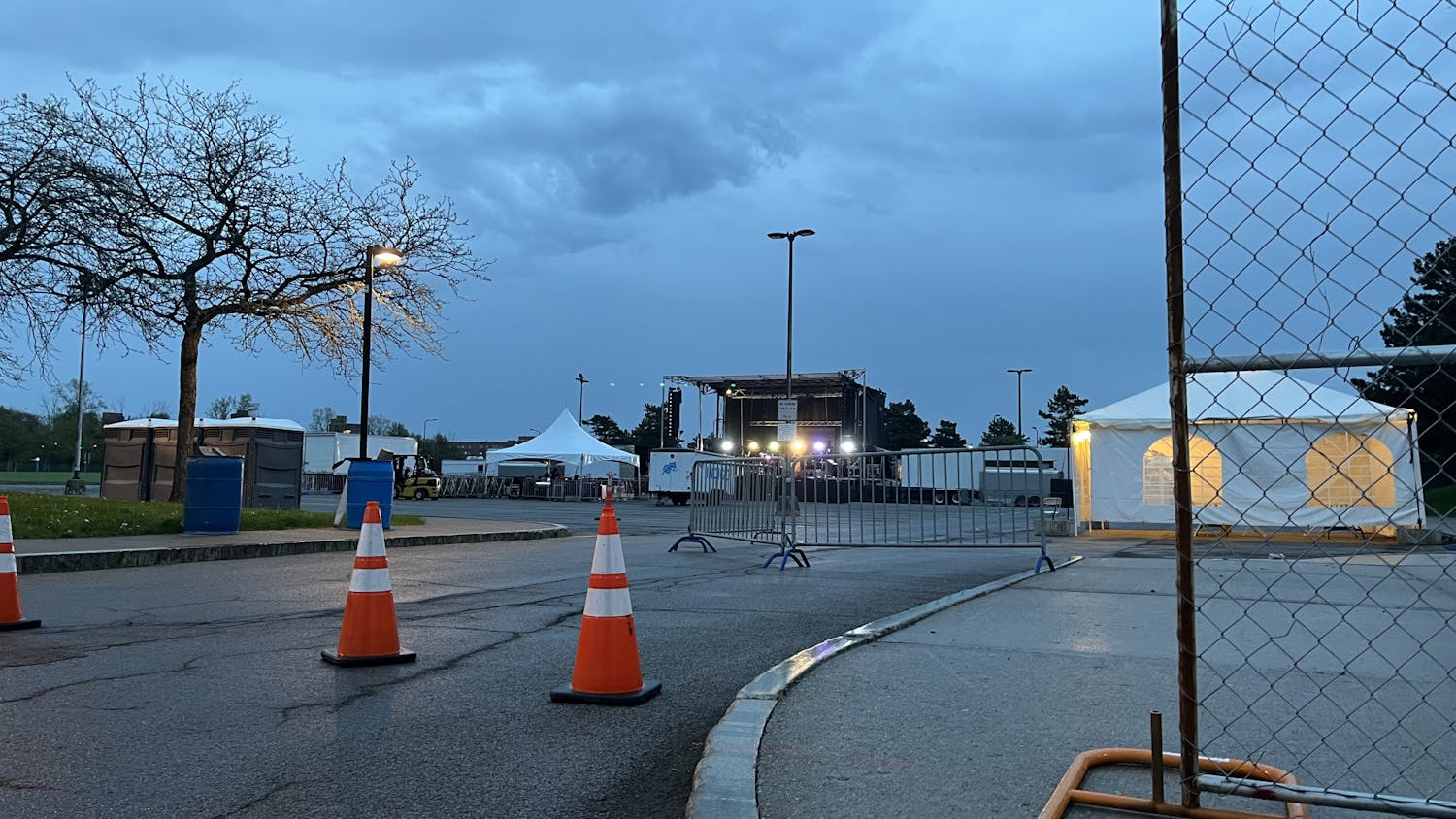Controversies surrounding the Solomon Amendment will come to a head soon, but while private colleges have been able to stand up to the legislation, public schools like UB are at a loss with how to keep their students' privacy at a premium.
Should a Supreme Court decision allow universities to not turn student databases over to military recruiters without the threat of losing funding, UB should take the moral high ground and withhold that information. Should the court uphold the Solomon Amendment, UB and other public universities are in a position where many would like to maintain privacy protection, but when weighing the value of federal funding, such as research grants, versus giving recruiters an e-mail database, it's reasonable for UB to make that trade. Sure, it's selling out on a certain level, and UB wouldn't fold without those federal funds, but in the end, it's just e-mail addresses. College students are conscious enough to read recruiter spam and deal with it one way or another. The risk of losing money that goes towards benefiting students is not worth it.
Arguments in the case of the Forum for Academic and Institutional Rights vs. Rumsfeld begin Dec. 6, and they will be watched closely. The 1996 Solomon Amendment required institutions of higher learning to allow military recruiters on campus or face the possibility of grants being denied by the Secretary of Defense. That's exactly what happened to the Vermont Law School, New York Law School, and William Mitchell College of the Law, which is why they joined forces with FAIR in litigation. The campuses denied military recruitment because they objected to the military's "don't ask, don't tell" policy regarding homosexual applicants. The U.S. Court of Appeals third circuit ruled in the schools' favor, stating the amendment as unconstitutional.
The controversy revolving around military recruitment through UB's e-mail databases shows how close the issue hits to home.
Allowing military recruiters access to any student databases is a slippery slope. However, UB is not a private entity like the others that have denied recruitment, thus losing federal funding. UB relies on that funding for the many grants that allow for the high caliber of research and study conducted on campus. Cutting off any part of this source would harm the university immeasurably.
While UB should always strive for moral heights, realities of the war on education versus the war on terror will take their toll.
Fulfilled promises
SA balances entertainment demands, finalizes online syllabi
The current leadership of the Student Association should be commended for a job well done, so far. UB students should feel comfort in knowing that those elected to serve their interests are getting some things done, as opposed to just talking about them.
The news that SA has budgeted its entertainment allowance correctly is most welcome. Many students remember the entertainment budget debacle of two years ago that brought the less-than-stellar Hoobastank-led MTV2 tour to Spring Fest, because Godsmack and Little Kim depleted the available funds in headlining the Fall Fest lineup.
With SA on track to spend its money almost evenly between semesters, this year's Spring Fest line up holds promise for more major acts performing, along with a comedy routine similar in stature to Chris Rock's appearance two years ago.
Further evidence the SA is getting things done is the long promised online course syllabi program that is coming to fruition. If it works as promoted, MyUB will allow UB students to view the syllabus for any, and every, class offered by the university, online. Regardless of the program's merits, it's refreshing to see one of SA's pet projects finally come through.
SA still needs to get its house in order, especially the ongoing controversies surrounding last semester's elections, but recent events show the current crop of leadership to be able in their mission as student advocates. That was hard to say a couple of years ago.




